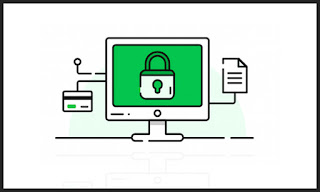Technology has changed the retail landscape forever and is
redefining e-Commerce every day. Many customers are still skeptical
about exchanging their financial details online fearing information
security. To win them over, organizations need to get an SSL certificate
and migrate from HTTP to HTTPS.
Since 2017, Chrome has already started tagging HTTPS websites as
“secure” for exchanging financial information. A “secure” tag can
certainly win consumer trust, translating to better customer conversion
opportunities and better revenues for which the organisation must
identify the best SSL Certificate provider.
Before organizations migrate their website from HTTP to HTTPS, they have they need to identify what needs to be validated, and from who to buy the validation certificate. There are three types of validations available that help in identifying what needs to be validated however, there are a lot of SSL certificate vendors in the market and the problem is how to Choose the best SSL Certificate provider.
Domain Validation: Domain Validation, or DV is the lowest level of validation and the SSL certification is given only for the domain name. The Certification Authority (CA) will only check if the website domain is authentic and the rights to use it are with the applicant only. These certifications need not have the ownership information displayed in them. There are minimal checks by the CA here and thus has the highest vulnerability to phishing attacks.
Organization Validation (OV): Also known as Business Validation or high-assurance certification, the OV involves a physical investigation by the CA to ascertain the authentication of domain and the organization. An OV certification holds the organization name.
Extended Validation: Extended Validation (EV) is the highest form of authentication. EV certificates follow the highest standards for identity assurance to establish the legitimacy of online entities; this includes rigorous and meticulous documentation checks. The process involves physical investigation and thus may take longer for the certification to be awarded.
How to Choose the right SSL Certificate provider:
After you have identified the level of certification needed, you need to choose the certification authority to buy the SSL from. The number of SSL vendors available in the market may confuse you.Buying Cheap SSL Certificate may Cost You More! Here are some pointers that may help you identify the right partner:
Before organizations migrate their website from HTTP to HTTPS, they have they need to identify what needs to be validated, and from who to buy the validation certificate. There are three types of validations available that help in identifying what needs to be validated however, there are a lot of SSL certificate vendors in the market and the problem is how to Choose the best SSL Certificate provider.
Domain Validation: Domain Validation, or DV is the lowest level of validation and the SSL certification is given only for the domain name. The Certification Authority (CA) will only check if the website domain is authentic and the rights to use it are with the applicant only. These certifications need not have the ownership information displayed in them. There are minimal checks by the CA here and thus has the highest vulnerability to phishing attacks.
Organization Validation (OV): Also known as Business Validation or high-assurance certification, the OV involves a physical investigation by the CA to ascertain the authentication of domain and the organization. An OV certification holds the organization name.
Extended Validation: Extended Validation (EV) is the highest form of authentication. EV certificates follow the highest standards for identity assurance to establish the legitimacy of online entities; this includes rigorous and meticulous documentation checks. The process involves physical investigation and thus may take longer for the certification to be awarded.
How to Choose the right SSL Certificate provider:
After you have identified the level of certification needed, you need to choose the certification authority to buy the SSL from. The number of SSL vendors available in the market may confuse you.Buying Cheap SSL Certificate may Cost You More! Here are some pointers that may help you identify the right partner:
- CA reputation: SSL validation is essentially a product and the CA is a vendor. The service provided and the security guarantee is of prime importance. Accessing the CA’s reputation in the market will help you decide better.
- Customer Service: Getting your SSL validation and migrating from HTTP to HTTPS can be tricky. A CA with a strong Customer service offering should be a deciding criteria as a real human can help you tide over all your issues and answer all your questions.
- Issuance Speed: The issuance speed majorly dependent on the type of validation and also depends on the CA. OV and EV validations involve physical while selecting a CA, it is best to understand how fast they can complete the validations.
- Warranty: The CA warranty affects the user, the amount of warranty basically assures the customers of the seriousness a website has about their personal information. Considering the amount a CA offers as warranty should be one of the evaluation criteria.
- Certification Validity: Generally an SSL certificate is valid for a year, however there are CA’s in the market that offer validation for multiple years. This saves you the trouble of revalidation every year.
- Security Seals: Many CA’s provide a site seal to websites that have their certification. These seals are a feel good factor for the customers. You may decide to either show the seal or to hide it in the website.




